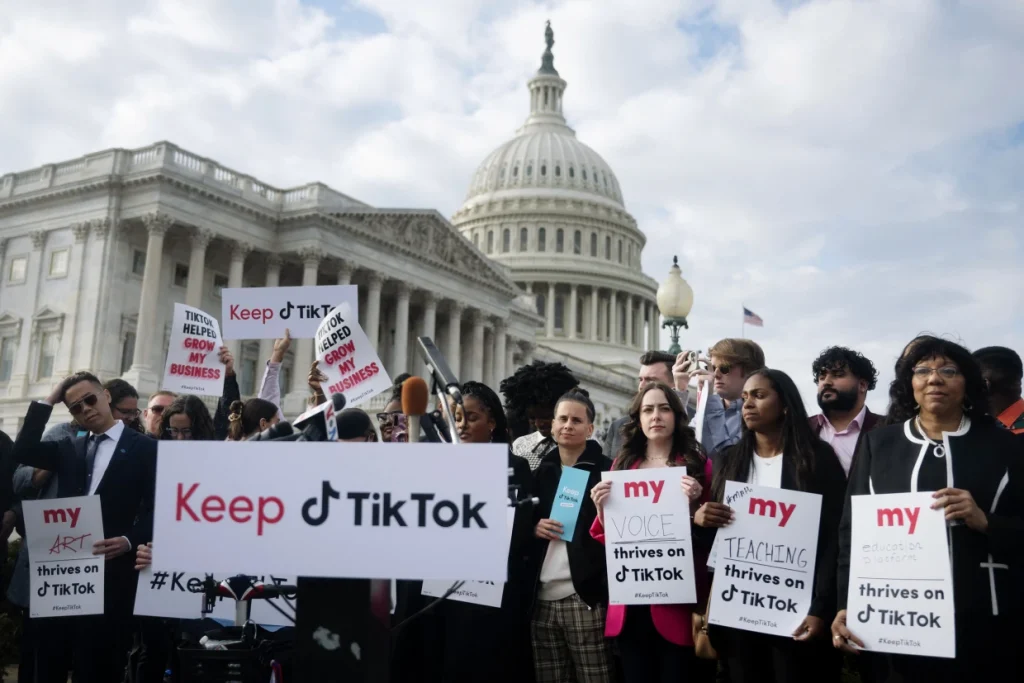
The US Supreme Court on Friday, January 17, 2025 upheld a bipartisan law that could lead to a nationwide ban on TikTok, rejecting the social media platform’s free speech challenge. The decision requires China-based ByteDance, TikTok’s parent company, to divest its U.S. operations by Sunday or face a ban.
The ruling comes just before President-elect Donald Trump is set to take office, introducing uncertainty about the law’s enforcement. While the Biden administration has indicated it will not take immediate action, Trump has suggested he may intervene to keep TikTok operational in the U.S.
The U.S. Justice Department defended the law by citing two primary concerns:
- Content Manipulation – Officials warn that the Chinese government could influence public opinion by controlling the content that appears on TikTok.
- Data Privacy Risks – ByteDance could potentially share sensitive user data with the Chinese government, raising security concerns.
These concerns led Congress to approve the law, though political sentiment around banning TikTok has shifted in recent months.
Despite previously attempting to ban TikTok during his first term, Trump has softened his stance on the platform, recently stating he has a “warm spot” for TikTok after meeting with its CEO.
Grant a 90-Day Extension – A provision in the law allows for an extension of the divestment deadline, giving ByteDance more time to sell TikTok to a U.S. buyer.
Refuse to Enforce the Ban – While Trump could delay enforcement, tech companies such as Apple and Google may still remove TikTok from their app stores due to potential legal risks.
Under the law, companies that help distribute or maintain TikTok could face civil penalties, enforceable up to five years after a violation, meaning future administrations could still take action.
If ByteDance refuses to sell and enforcement begins, TikTok could “go dark,” forcing millions of content creators to migrate to alternative platforms such as: Instagram Reels,
YouTube Shorts, Snapchat Spotlight
TikTok and its users argued that the ban violates First Amendment free speech protections, but the Biden administration countered that national security concerns take precedence.
A lower court, the U.S. Circuit Court of Appeals for the District of Columbia, had previously upheld the law, paving the way for the Supreme Court’s decision.
As Trump takes office on Monday, all eyes will be on his next steps regarding TikTok. Whether he grants an extension, negotiates a political solution, or declines to enforce the ban, the battle over TikTok’s future in the U.S. remains unresolved.








